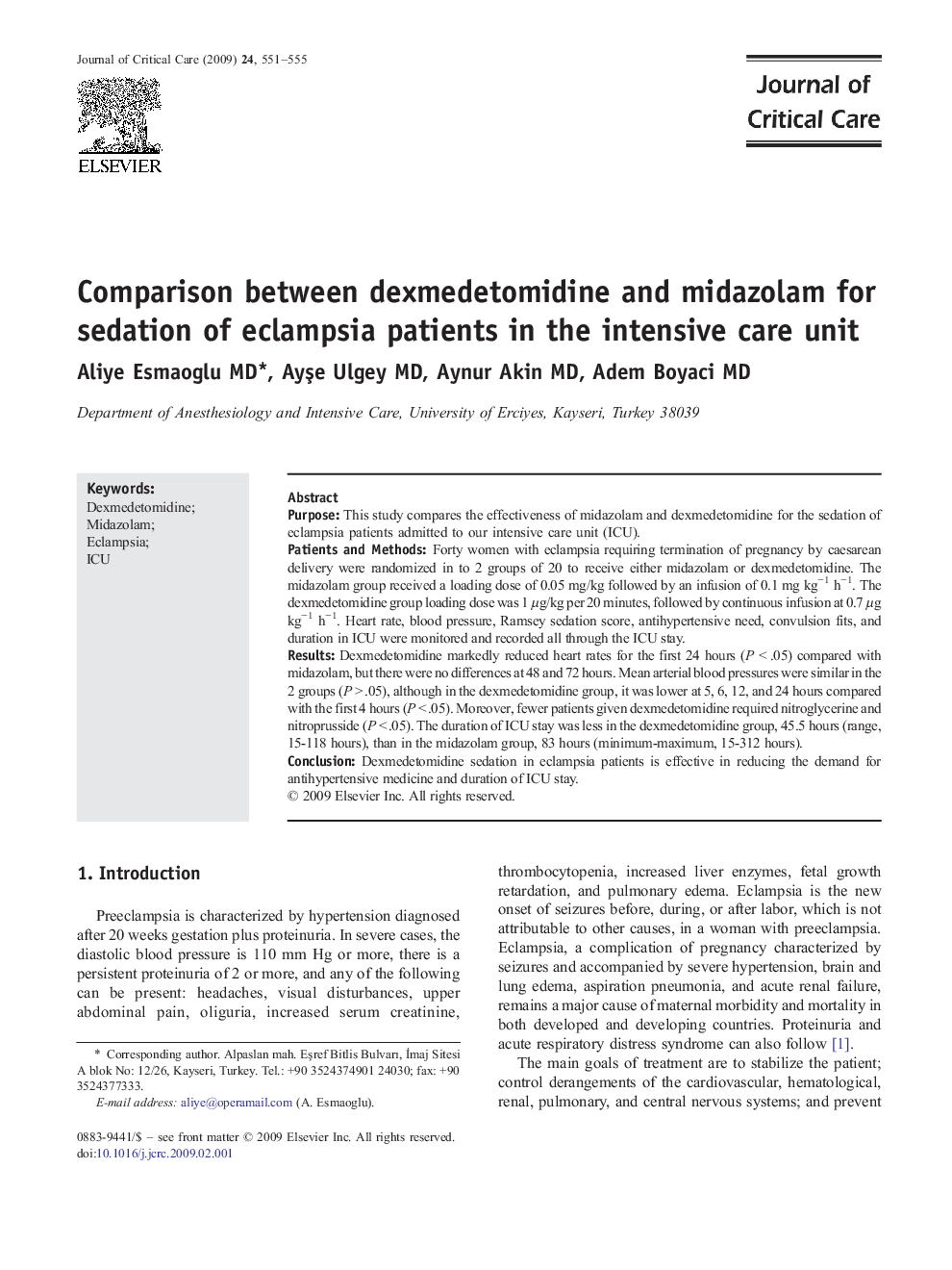| Article ID | Journal | Published Year | Pages | File Type |
|---|---|---|---|---|
| 2765614 | Journal of Critical Care | 2009 | 5 Pages |
PurposeThis study compares the effectiveness of midazolam and dexmedetomidine for the sedation of eclampsia patients admitted to our intensive care unit (ICU).Patients and MethodsForty women with eclampsia requiring termination of pregnancy by caesarean delivery were randomized in to 2 groups of 20 to receive either midazolam or dexmedetomidine. The midazolam group received a loading dose of 0.05 mg/kg followed by an infusion of 0.1 mg kg−1 h−1. The dexmedetomidine group loading dose was 1 μg/kg per 20 minutes, followed by continuous infusion at 0.7 μg kg−1 h−1. Heart rate, blood pressure, Ramsey sedation score, antihypertensive need, convulsion fits, and duration in ICU were monitored and recorded all through the ICU stay.ResultsDexmedetomidine markedly reduced heart rates for the first 24 hours (P < .05) compared with midazolam, but there were no differences at 48 and 72 hours. Mean arterial blood pressures were similar in the 2 groups (P > .05), although in the dexmedetomidine group, it was lower at 5, 6, 12, and 24 hours compared with the first 4 hours (P < .05). Moreover, fewer patients given dexmedetomidine required nitroglycerine and nitroprusside (P < .05). The duration of ICU stay was less in the dexmedetomidine group, 45.5 hours (range, 15-118 hours), than in the midazolam group, 83 hours (minimum-maximum, 15-312 hours).ConclusionDexmedetomidine sedation in eclampsia patients is effective in reducing the demand for antihypertensive medicine and duration of ICU stay.
